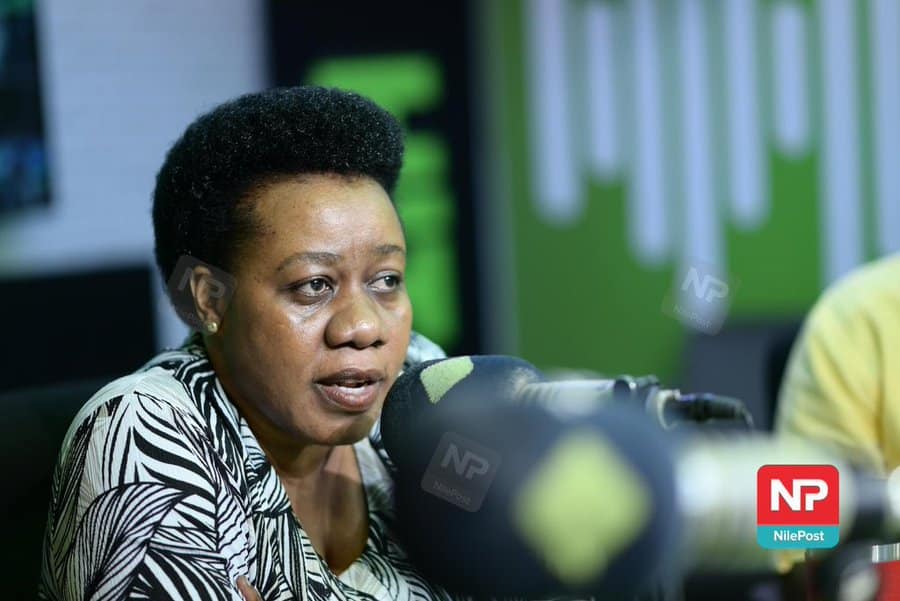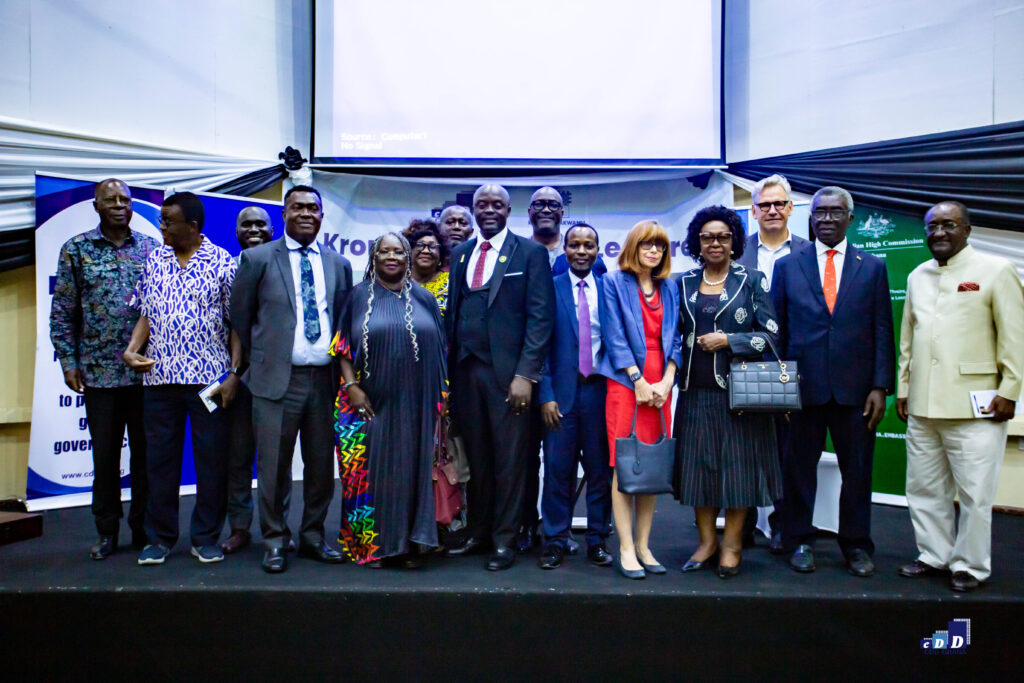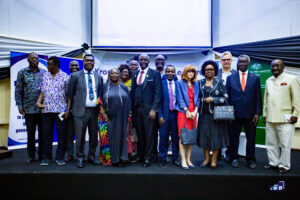The 2024 presidential and parliamentary elections are generally over. There are still some post-election issues to be resolved with nine outstanding constituencies. Nonetheless, Ghana has held nine successful elections, voted to for six presidents, and chose political party turnover four times (2000, 2008, 2016, 2024) over the last thirty-one years of democratic governance. Electoral competition has gained a strong foothold in our democratic architecture. The competition remains a contest between two political parties – the National Democratic Congress (NDC) and the New Patriotic Party (NPP). What lessons does this periodic exercise of going to the ballot box to choose a president and members of parliament offer the country and the future of its democracy?
Key Lessons After Nine Electoral Competitions in Ghana
Election and accountability. Election is emerging as the key tool for holding governments accountable judging from the four-ruling party (2000, 2008, 2016, 2024) and one presidential term (2016) turnovers over the course of nine elections. The results of the just ended election send a strong signal to governments that being unresponsive to the everyday needs of citizens has electoral consequences. Ghanaians made that clear in 2016 in response to their dissatisfaction with the John Mahama government and have repeated same with this election in response to the NPP government. It is an imperfect accountability mechanism especially because citizens must wait to pull this lever every four (limiting misgovernance to one term) or eight years (limiting misgovernance to two terms). The consequences of misgovernance can endure for long periods. Citizens must therefore find other ways to hold leaders accountable in between elections even as they wait to use the ultimate tool – election.
The misplaced burden of protecting the ballot. The burden of ensuring a free and fair election appears to fall disproportionately on political parties. Each election comes with a heightened call for vigilance and the need to protect the ballot by political parties, especially the main opposition party. This was evident in the many issues raised by the NPP in 2016 and the NDC in 2024. This drives Ghana’s two main political parties to engage in various electoral policing activities. It scenes of teeming supporters at election collation centers or the need to build alternative command centers to collate and unofficially declare results are all part of political parties ensuring election outcomes are truly free and fair. The need to protect the ballot and ensure electoral integrity must not create this self-imposed burden on political parties. It is the primary responsibility of the Electoral Commission (EC). Future elections must create an environment where political parties will not feel the need to engage in extra judicial activities all in the name of protecting the ballot.
Rebuilding trust in the Electoral Commission. The next four years must include intentional efforts to rebuild trust in our electoral system. The Afrobarometer survey as well as the National Commission for Civic Education (NCCE) 2024 election year report pointed to worrying levels of trust in the EC and electoral system. This mainly explains why political parties believe extra judicial efforts are needed during elections as stated in the previous point. It continues to be a mystery why the NDC and NPP, especially when in opposition, tend to raise deep suspicions about the EC and its motives. With all the transparency mechanisms built into each step of the electoral process from voter registration to results declaration, there is still a deeply held belief that the EC holds in its power, the ability to change election outcomes contrary to the expressed will of voters. Saying this does not absolve the EC of administrative errors and some of its decisions which have the unintended consequences of worsening suspicions. However, this ninth election clearly demonstrates the need to rebuild trust and confidence in the EC. The country has four years to do this before the next election.
Improving post-election security. In preparing for elections, security concerns appear to focus more on pre-election and election day activities. For example, the efforts that go into policing and securing ballot printing and transportation. Another example is law enforcement on election day at polling stations and collation centers. We must expand our security preparations to include the immediate post-election days when a winner is announced. The country regularly witnesses violent behavior by party supporters after a turnover election, so it is baffling when it appears there was no plan in place to protect public property. Furthermore, the need for strong immediate law enforcement when these acts occur is critical. It is very surprising to observe the response of law enforcement when compared to their history of strong and immediate response in other situations like during protests by citizens. Without a strong and immediate law enforcement response, there is nothing to deter lawless citizens from engaging in violent conduct in the immediate aftermath of electoral victories.
The maturity of the Ghanaian voter. Every election cycle witnesses a flurry of last-minute activities by incumbents leading to accusations of incumbency abuse. Whether it is cutting the sod for new infrastructure projects or commissioning completed ones, these are designed to demonstrate government accomplishments as well as score political points with voters. No one argues that the process of governance must stop in an election year. However, these last-minute incumbent government activities are not enough to compensate for the lack of satisfactory solutions to the many socio-economic and governance pinch points faced over years before an election. The same goes for other forms of inducements which are regularly offered to bend the will of voters. If political parties will pay attention, as far back as 2016, in a pre-election survey, the Ghana Center for Democratic Development (CDD-Ghana) found that 42% of Ghanaians, when offered an inducement will take it but vote for their candidate of choice. Ghanaian voters demonstrated this in 2016 and have repeated same in 2024.
Growing misinformation and disinformation. This phenomenon is becoming a regular feature of political campaigns made easy by technology. Reflect for a minute on these rival political ads. One depicted the NPP as pro-LGBTQ+ rights and ended with a call on voters to vote for the NDC. Another portrayed the NDC’s presidential candidate as pro-LGBTQ+ rights and urged Ghanaians to vote for the NPP to protect family values. Two things were perplexing about these ads. First, both the NDC’s and the NPP’s presidential candidates explicitly stated their opposition to same-sex relationships on grounds of their faith. Second, their positions could be easily verified on YouTube, Facebook, X and the websites of several media platforms. This is one of several misleading claims on both sides of the political aisle made during the election on various issues. These dueling political ads are symptomatic of the paradoxical nature of electoral competition in Ghana in the age of technology and social media. On the one hand, it has democratized access to and eased the dissemination of information. But on the other hand, it has also ushered in a period of misinformation and disinformation to gain political advantage. What policy tools were deployed to deal with this? There were some public education efforts by the National Commission for Civic Education and the Ministry of Information. Law enforcement tools were not fully deployed to combat this problem by identifying and punishing the purveyors of misinformation and disinformation. The police arrested a journalist who “informed” listeners that the election was going to be held on two different dates — one for the NPP presidential candidate, and another date for all other candidates. It will be interesting to see the outcome of the case. Maybe the lessons of 2024 will shape how state actors combine different tools of public policy to deal with this new era of political competition.
The media as a platform for misinformation and disinformation. The proliferation of campaign ads in this election occurred on a scale never seen before when compared to other elections. It is also a sign of what Ghanaians can expect in subsequent elections. Some of the ads made misleading claims about candidate positions on various policy issues, not forgetting the rhetoric used as well. Several of the ads were featured on major news media platforms. While one can understand the economic value of these ads to media houses and the revenue generating imperative to accept them, it must be balanced with reporting the truth. Another issue for media houses to pay attention to is the dueling news conferences held by NPP and NDC on election day as citizens await results. These news conferences make claims and assertions that are sometimes untrue, and it is up to the media to either correct these claims or black them out. If these are ignored, our media houses simply become a conveyor belt for misinformation and disinformation during electoral competitions.
Political re-alignment. In 2020, the NDC won 9 regions while the NPP won 7. In the just ended elections, the NDC won 13 regions with the NPP picking up three. The NDC margin of victory, the improved performance in areas won by the NPP, and the flipping of NPP parliamentary seats has resulted in a significant re-drawing of the electoral map. This is eight years after the NPP won the 2016 election and produced a re-alignment of its own. Undoubtedly, the 2024 election has resulted in a re-alignment of the political map. Will this endure especially when compared to previous re-alignments when elections resulted in party turn over or is this symptomatic of the alternating eight years Ghanaians give the NDC and NPP? Time will tell how the NDC uses this re-alignment as it will dictate whether Ghanaian voters will cause another one in eight years.
Political temperament of partisans. It may be good fun and provide material for political memes when partisans make electoral claims on election day across social media platforms. However, when claims about voter turnout, constituencies won, etc. are outrightly false, it raises concerns and potential consequences for a future election where political passions are unrestrained. Active engagement by citizens on election day and the provision of updates does not hurt the electoral process as long as it does not degenerate into making false claims about the election. In addition, it is time some partisans sanitized the language used in political discourse. The lack of decorum and the use of indecent language taints our democracy.
Improved public education. This election shows there is still need for public education on two important matters – post-election violence and proper handling of ballots. There must be a coordinated effort between the National Commission for Civic Education (NCCE), the National Peace Council, Media, Civil Society Organizations, Law Enforcement, and Political Parties to address this issue of post-election violence by followers of winning candidates. These citizens must change their civic mindsets when it comes to the proper exercise of political temperaments during electoral victories. Do these rioting and looting citizens ask themselves what the destruction of state property achieves? In addition, the civic mindset must begin to process elections as signal-sending opportunities to elect officials about public problems in need of immediate solutions. They should not be seen as a winner-takes-all opportunity and a license to engage in lawless conduct. The other public education issue is how ballots are handled by citizens. As per the EC’s report during results declaration, there were 239,109 rejected ballots which equals 2% of the total votes cast. This is one too many citizens whose votes did not count in this election. Credit to efforts on ballot handling by the political parties, NCCE, and EC leading up to the election. Nonetheless, this shows more work is needed. Perhaps what constitutes a rejected ballot can be re-examined as part of addressing this challenge.
A Special Note About The EC
The EC courted a lot of attention during this election. On the back of low levels of trust as expressed by Ghanaians in the Afrobarometer survey, administrative decisions as well as errors by the EC unfortunately deepened the mistrust. The long delay in results declaration heightened anxiety among citizens. In fairness, the law gives the commission up to 72 hours to declare elections results. The letter and spirit of the law is to allow the commission ample time to complete all necessary administrative processes for an accurate declaration of results. Elections, however, create tensions and anxieties among citizens who are eager to have their preferred candidate officially declared a winner if that is the outcome. While understandable, the EC cannot sacrifice accuracy on the altar of expediency or satisfaction of citizens’ anxiety. What the EC can do, between the close of polls and the official declaration of results, is provide regular public briefings. In that case, it does not create long periods of silence and information gaps.
Over the years, important changes have been made to the electoral process as a way of strengthening transparency and increasing confidence in election outcomes. One such change is allowing political parties to have copies of the record of poll (pink sheets) at polling stations. With that, political parties now being able to quickly collate results after the close of polls since the 2016 elections. It takes them, with the right infrastructure in place, no more than ten hours after the close of polls to know their fate. It is tempting to question the EC’s relevance under such circumstances, but elections and declaration of results cannot be left to political parties. What if, out of political mischief, all contestants declare victory? The security implications can be dire. There is the need for a constitutionally sanctioned independent body needed to oversee our electoral process. That is the role and relevance of the EC.
Having said that, the EC must look at the process of how results, certified at the polling station level, are ultimately aggregated at the national level for declaration. Are there steps in the administrative process that can be truncated? Can technological advances enable the EC to improve the efficiency and effectiveness of the process? All these are worthy of examination as the EC engages in its own post-election debriefing on what can be improved in preparation for 2028.
Concluding Remarks
Ghanaians have made their peace with democracy. In the most recent Afrobarometer survey (Round 10, 2024), 73% expressed support for democracy. On a key feature of democracy, elections, in the same survey, 82% expressed support for choosing leaders through “regular, open, and honest elections.” Even among Ghanaians who did not express support for democracy in the survey, elections remain their preferred method for choosing leaders. For example, among those who say, “it does not matter what kind of government is in place”, 67% still support the use of elections as the method for choosing leaders. For those who say “in some circumstances, a non-democratic government can be preferable” 66% support the use of elections as the method for choosing leaders.
When asked in the Afrobarometer survey “how well do elections enable voters to remove from office leaders who do not do what the people want,” the percentage of Ghanaians saying “fairly well/very well” was 79% in Round 3 (2005) and 80% in Round 9 (2022). However, when asked “how well elections ensure MPs reflect the views of voters,” the percentage of Ghanaians saying “fairly well/very well” declined significantly from 71% in Round 3 (2005) to 62% in Round 9 (2022).
Although Ghanaian dispositions towards democracy and support for elections remain strong, the efficacy of elections is mixed. It is important to address these emerging electoral issues so the country can consolidate its electoral gains but also fix all challenges over the next four years.
 John Osae-Kwapong (Ph.D) is a Democracy and Development (D&D) Fellow at the Ghana Center for Democratic Development (CDD-Ghana) and the Project Director at The Democracy Project.
John Osae-Kwapong (Ph.D) is a Democracy and Development (D&D) Fellow at the Ghana Center for Democratic Development (CDD-Ghana) and the Project Director at The Democracy Project.
















